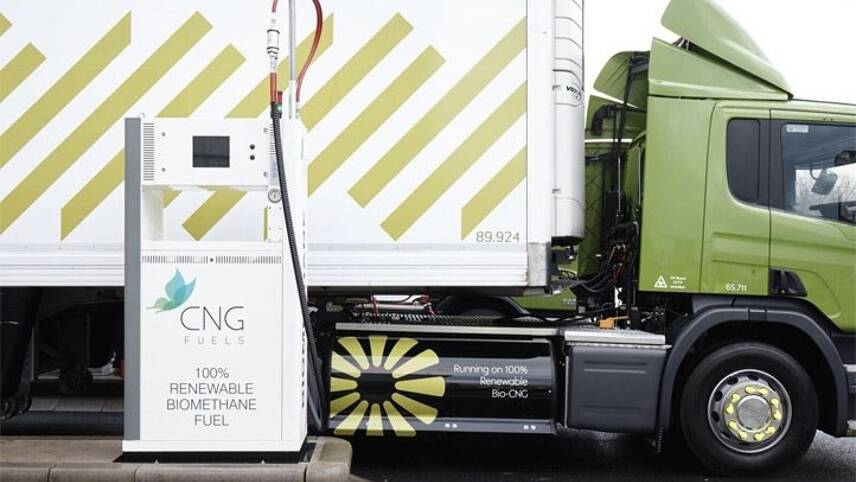Register for free and continue reading
Join our growing army of changemakers and get unlimited access to our premium content

CNG Fuels supplies to high-profile companies
CNG Fuels is consulting on how its network of refuelling stations can accommodate the technologies and believes that biomethane from manure can act as a carbon-negative fuel and hopes to roll it out in the UK by 2021.
Manure gives off methane, a greenhouse gas 28 times more powerful than carbon dioxide. Using methane as an HGV fuel prevents it from going into the atmosphere, therefore reducing emissions as a result.
CNG Fuels chief executive Philip Fjeld said: “We want to help decarbonise freight transport and enable fleet operators to meet Net Zero targets now, supporting the UK’s climate targets.
“Renewable biomethane sourced from manure is currently the best low-carbon solution for HGVs, but we want to be ready to support our customers when other technologies are commercially viable for freight transport.”
The company currently sources biomethane from food waste and is securing new supplies to source it from manure to create net-zero emissions fuel on a well-to-wheel basis.
HGV rollout
CNG Fuels supplies to high-profile companies, most notably the John Lewis Partnership.
The John Lewis Partnership, which operates the John Lewis and Waitrose retailers, will convert its 500-strong fleet of diesel delivery trucks to be powered by bio-methane by 2028, announced on edie’s Mission Possible Pledge Wall last year.
John Lewis & Partners and Waitrose & Partners will convert their combined fleet of diesel lorries into vehicles powered by clean bio-methane over the next 10 years, according to the new pledge.
The transition will reduce fleet emissions by more than 80% and save more than 49,000 tonnes of CO2 annually – equivalent to the carbon footprint of more than 6,000 UK households.
John Lewis and Waitrose have together been early adopters of transport fuelled by compressed natural gas (CNG) and the duo is currently exploring the economic and environmental benefits of switching from diesel to the low-carbon bio-methane fuel.
Renewable bio-methane CNG can be up to 30% to 40% cheaper than diesel and can typically cut CO2 emissions by 85% as a result. HGVs such as the fleet trucks used by retailers haven’t benefitted from the electrification of the transport sector and alternative fuels are therefore desirable to help lower emissions.
Last year, the firms were operating at least 49 dedicated CNG trucks – some of which have a range of more than 500 miles. Both John Lewis and Waitrose expect the trials to create lower running costs that will generate between £75,000 to £100,000 in lifetime savings per truck, compared with a diesel equivalent.
CNG Fuels, the firm supplying renewable fuel to the Waitrose fleet, has opened a renewable biomethane refuelling station at Northampton to assist with the UK study.
The project has received funding from the Office for Low Emissions Vehicles (OLEV) in partnership with Innovate UK and the refuelling station will open near to where Waitrose and John Lewis have their national distribution hub.
According to CNG Fuels, the Northampton centre can refuel more than 350 trucks a day and can use mobile trailers if the gas supply is cut off during an emergency. The company’s other station in Leyland, Lancashire has seen CNG demand increase 170% in a year.
Matt Mace


Please login or Register to leave a comment.